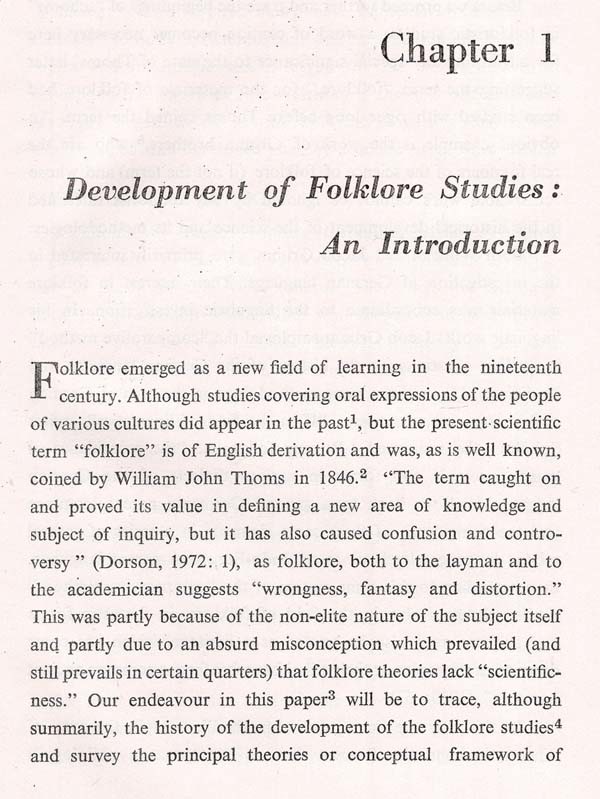
Current Trends in Folklore (An Old and Rare Book)
Book Specification
| Item Code: | AZE138 |
| Publisher: | University of Mysore, Mysore |
| Language: | ENGLISH |
| Edition: | 1978 |
| Pages: | 174 |
| Weight | 340 gm |
Book Description
Current trends in folklore is a collection of analytical essays introducing some methodological and application aspects of current folklore theories, particularly Proppian and Lévi-Straussian. The author tests these theories and models on Indian data and attempts to establish the validity of such models in cross-cultural and cross-generic situations.
He also summarizes the major trends dominating the current folkloristic research and points out directions in which these are moving.
Stith Thompson once said: "The essential of all folklore study is collecting and attempting to understand that which has been collected.” Indian folklore is scattered in several languages which have long histories. It invites all attempts to define and categorize its richness and complexity. For the past few years scholars, native as well as foreign, have done tremendous work in collecting this rich and varied material. But attempts to study and analyse these collected materials are of very recent origin. Since folklore is not recognized as an academic discipline to attain independent status in our universities, very few attempts are made to study folklore seriously. Therefore, the scientific growth of this subject, naturally, did not take place. Contribution of Indian scholars to the theory of folklore is practically nil. Fortunately, attention of our universities and scholars is now being focussed on folklore studies. Publication of Current Trends in Folklore by Dr. Jawaharlal Handoo is an example of this happy development. This, perhaps, is the first serious book in English, ever attempted on the theoretical aspects of folklore by an Indian folklorist and published by an Indian university.
This is not to say, though, that folklore and folkloristic has been completely neglected in India. Even a novice to the field of Indian folklore, such as myself, must recognize that there have been pockets of interest in folklore and folkloristic scattered over time and region dating back, perhaps, hundreds of years. However, as was true in Europe and America over the past century and a half, interest in folklore has been motivated primarily by other ends literary, sentimental, religious, nationalistic, political etc.
**Contents and Sample Pages**












